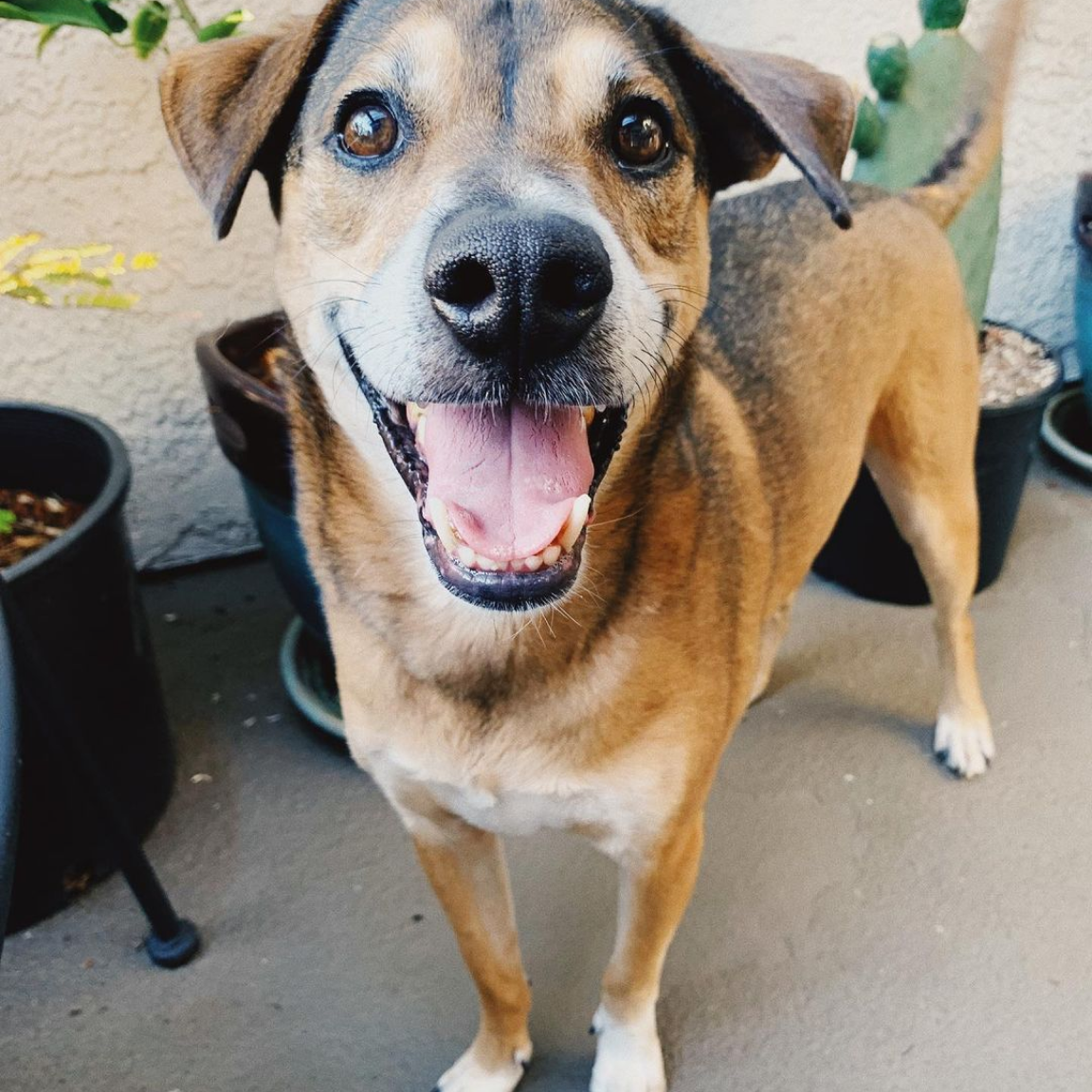
Why Is My Dog Breathing Fast While Sleeping?
Information from: Tiffany Ruiz Dasilva, VMD, cVMA | Professional Services Veterinarian, Wild Earth
Summary:
-
Dogs typically breathe 15–35 times per minute while resting or sleeping; anything consistently above 40 could be a concern.
-
Common causes of fast breathing during sleep include dreaming, recent exercise, stress, or breed-specific traits.
-
Serious issues like respiratory problems, heart disease, or metabolic disorders may require immediate veterinary care.
-
Monitoring your dog’s normal breathing rate and watching for additional symptoms can help identify when something isn’t right.
-
Creating a comfortable sleeping environment, quiet, clean, and temperature-controlled, supports relaxed breathing.
- If unusual breathing patterns persist or are accompanied by other signs, consult a veterinarian for early diagnosis and treatment.
If you’ve ever watched your dog sleep and noticed their chest rising and falling a little too quickly, you’re not alone. It’s natural to wonder if something might be wrong.
Sometimes, fast breathing during sleep is completely normal, especially if your dog is dreaming or just had a big play session. But in other cases, it can be a sign that something needs your attention.
In this guide, we’ll explore the common reasons dogs breathe fast while sleeping, how to tell what’s normal, and when it’s time to call the vet.
What Is a Normal Breathing Rate for a Dog?
Knowing what’s normal for your dog helps you spot when something isn’t right. Most dogs take between 15 and 35 breaths per minute while at rest or asleep. Puppies and small breeds tend to breathe a little faster, while larger dogs often breathe more slowly. Anything above 40 breaths per minute during sleep could be worth checking out, especially if it comes out of nowhere or isn’t linked to activity or excitement.
Common Causes of Fast Breathing in Dogs While Sleeping
Fast breathing doesn’t always mean something is wrong. In many cases, it’s just part of your dog’s natural behavior or breed characteristics.
Dreaming
Dogs go through sleep cycles just like we do, and during the REM stage, the dreaming phase, it’s totally normal for their breathing to speed up. You might also notice twitching, little paw movements, or soft noises. This usually only lasts a few minutes and is nothing to worry about.
Recent Exercise
After a long walk, a game of fetch, or any kind of play, your dog may continue to breathe quickly even after they’ve settled in to rest. Their body just needs time to cool down and return to normal. As long as their breathing slows within a few minutes, it’s generally harmless.
Stress or Anxiety
If your dog is feeling anxious or overwhelmed, their breathing can stay elevated even during sleep. Common triggers include loud noises, unfamiliar environments, or separation from you. A peaceful, quiet sleeping space can help ease their stress and promote more restful breathing.
Breed-Specific Traits
Flat-faced (brachycephalic) breeds like Pugs, Bulldogs, and Boston Terriers naturally breathe a bit faster and louder than other dogs. Their shorter airways can cause snoring, gasping, or heavy breathing, even while they sleep. In some cases, these issues may need to be managed with help from your vet.
Serious Underlying Conditions
While fast breathing is often harmless, there are times when it signals a more serious issue. Keep an eye out for other symptoms that may suggest your dog needs medical attention.
Respiratory Issues
Conditions like pneumonia, asthma, kennel cough, or tracheal collapse can all make it harder for your dog to breathe. You might hear wheezing or notice shallow breathing. These issues usually require quick veterinary care to prevent complications.
Cardiovascular Problems
Heart disease or congestive heart failure can cause fluid to build up in the lungs, leading to labored or rapid breathing. Other signs might include coughing, fatigue, or a swollen belly. If you notice any of these, a vet visit is essential.
Metabolic Disorders
Anemia and heatstroke are two conditions that can force your dog to breathe harder to get enough oxygen or cool their body down. Both are serious and require emergency care. If your dog seems hot, tired, or breathless without reason, don’t wait to seek help.
Other Medical Causes
Sometimes, breathing changes come from less obvious issues like pressure on the windpipe, internal injuries, or hernias. These can be harder to detect without tests, so if nothing else explains your dog’s symptoms, it’s worth a full vet evaluation.
When to Seek Veterinary Attention
Fast breathing during sleep isn’t always an emergency, but it can be. If you notice coughing, lethargy, fever, pale or blue gums, wheezing, or loss of appetite, it’s time to call your vet. These signs suggest that something more serious could be going on, and early treatment is always better than waiting.
Diagnosis and Treatment
To figure out what’s causing the fast breathing, your vet will start with a physical exam and ask about any recent changes in your dog’s behavior or environment. They may also run blood tests, take X-rays, or use ultrasound to check the heart and lungs. The goal is to identify the root cause so your dog can get the right treatment as quickly as possible.
Depending on the issue, treatment might include antibiotics for infections, heart medications, surgery, or simple at-home changes.
Importance of Early Intervention
Catching issues early makes a big difference. Quick care can lead to faster recovery, help prevent serious complications, and ease your stress as a pet parent. If you ever feel unsure, it’s better to check with your vet than to wait and see.
What You Can Do at Home
Your attention and care play a big role in your dog’s health. There are simple ways to help manage their breathing and spot changes early.
Monitor Breathing Rate
Watch your dog sleep and count how many times their chest rises in 60 seconds. Do this over a few nights to get a good baseline. If that number suddenly jumps above 40, especially without any clear reason, make a note and follow up with your vet.
Create a Comfortable Environment
A peaceful sleeping space helps your dog rest better. Keep their area quiet, clean, and free from dust or strong odors. A humidifier may help dogs with dry airways, and soft bedding can support more relaxed breathing. Temperature matters too, especially for breeds prone to heat sensitivity.
Observe for Additional Symptoms
Keep an eye out for any changes in appetite, energy levels, coughing, or the color of their gums. These signs, paired with breathing changes, can offer important clues that it’s time to take action.
Key Takeaways
Fast breathing while your dog sleeps is often nothing to worry about. It’s normal during dreaming or after exercise, and some breeds naturally breathe faster than others. But if the breathing seems unusual, sticks around, or comes with other symptoms, it’s worth checking in with your vet.
Understanding what’s normal for your dog and acting early when things change is one of the best ways to keep them safe, happy, and healthy.






































